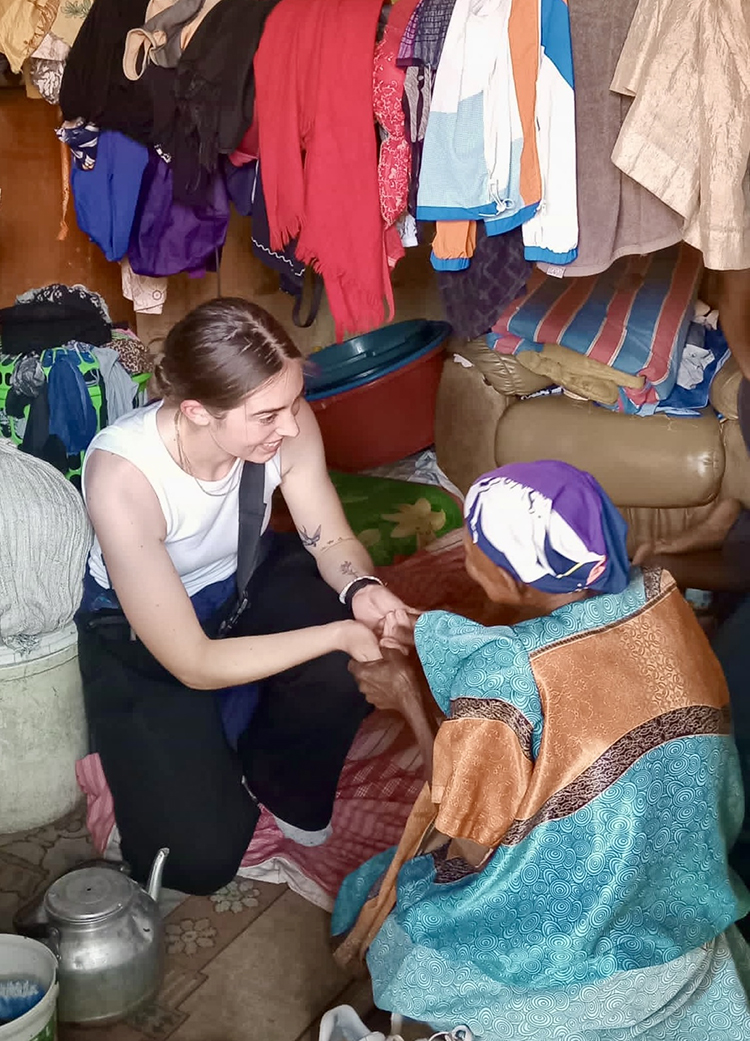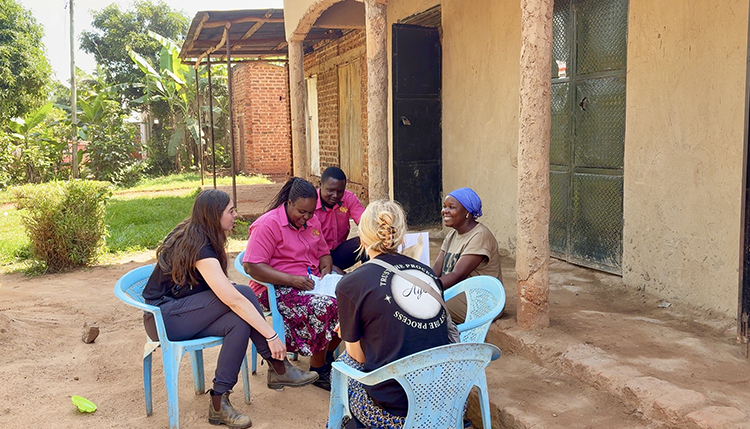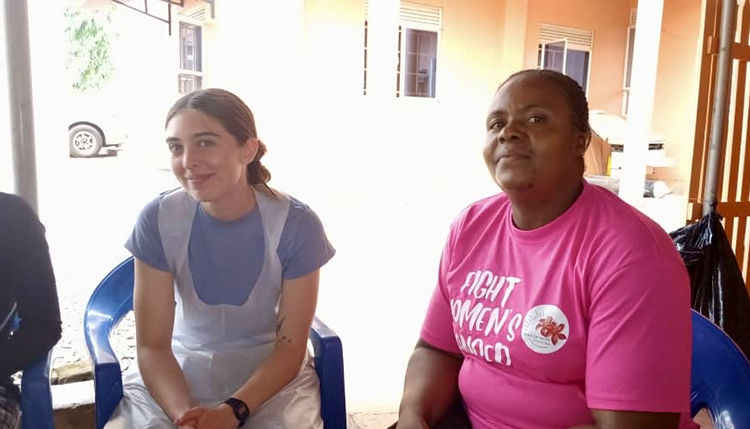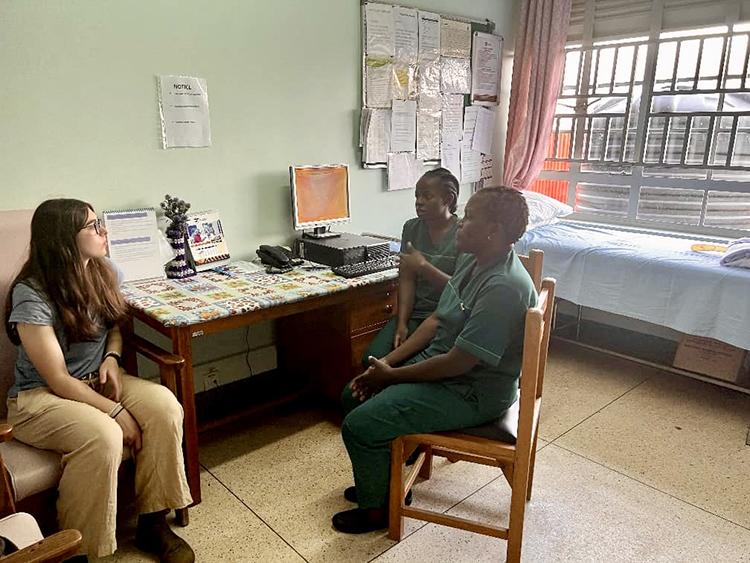A Reflection from Lauren Johns, GPIC Intern
It was tender where the nurse gently pressed with gloved hands and the woman winced at each careful touch along her abdomen. “There is a smell,” noted Dr. Margrethe, a volunteer doctor and program advisor at Rays of Hope Hospice Jinja (RHHJ). Cervical cancer – you can recognize it even before you say ‘Hello.’
 I understood what she meant the moment we stepped into the small, crowded home with the RHHJ clinical team. The woman sat on the floor, legs tucked beneath her, while we took our places on the couch. She had been under the hospice team’s palliative care for some time, living with cervical cancer, and now, an infection that worsened her condition. She described her pain in a quiet, deliberate voice, each word carrying the weight of her suffering. As we listened and the team took notes, the woman explained how she developed cervical cancer. Speaking in her mother tongue at first, I did not understand what she was saying, but as her story was translated, I pieced it together – she had acquired cervical cancer through past violent experiences.
I understood what she meant the moment we stepped into the small, crowded home with the RHHJ clinical team. The woman sat on the floor, legs tucked beneath her, while we took our places on the couch. She had been under the hospice team’s palliative care for some time, living with cervical cancer, and now, an infection that worsened her condition. She described her pain in a quiet, deliberate voice, each word carrying the weight of her suffering. As we listened and the team took notes, the woman explained how she developed cervical cancer. Speaking in her mother tongue at first, I did not understand what she was saying, but as her story was translated, I pieced it together – she had acquired cervical cancer through past violent experiences.
Gender-based violence (GBV) is the physical, sexual, psychological and economic violence directed at individuals based on their gender. While individuals of all genders, sexual orientations and gender identities can experience GBV, it disproportionately impacts women. Globally, it is estimated that one in three women has experienced GBV. Men also experience GBV, though it is often underreported and less recognized globally.
“It’s extremely common,” the RHHJ team said casually. They encountered GBV everywhere they went while providing at-home palliative care.
This past summer, I traveled to Kampala, Uganda, seeking to witness and understand these stories firsthand. I am pursuing a Master of Science in Global Health at the University of Notre Dame, where my research focuses on gender-based violence in the context of palliative care. I am analyzing data to explore the knowledge, attitudes and behaviors of palliative care providers as they address GBV in the lives of their patients. In collaboration with Dr. Eve Namisango and the African Palliative Care Association (APCA), our shared goal is to improve care for palliative patients experiencing GBV by educating and training palliative care providers.


On my first day as an intern with APCA, Dr. Eve told me, “GBV has no knowledge.” It is an undeniable force that can affect anyone. GBV is a loud act with a quiet presence. I have learned that its signs are often subtle, as patients usually suffer in silence, fearing abandonment or the loss of support from partners, family or community members.
 Recognizing and addressing GBV is never easy. Many patients do not even want you to know, but this experience has taught me that the quiet suffering of GBV cannot be ignored. Every story is a reminder that healing is not only physical, but also emotional and social. It is a reminder that our role as palliative care providers is not only to provide comfort and compassionate care, but to be the voice for those who cannot speak.
Recognizing and addressing GBV is never easy. Many patients do not even want you to know, but this experience has taught me that the quiet suffering of GBV cannot be ignored. Every story is a reminder that healing is not only physical, but also emotional and social. It is a reminder that our role as palliative care providers is not only to provide comfort and compassionate care, but to be the voice for those who cannot speak.
My time in Uganda will be unforgettable. I am so grateful for the experiences I had and the friends I made along the way. I want to give a special thanks to the APCA team for all of their support and to Dr. Eve for trusting me to help her with this research. Additionally, I want to thank the Palliative Care Association of Uganda (PCAU) for welcoming me to the wonderful world of palliative care and the RHHJ team for giving me once-in-a-lifetime opportunities to witness palliative care in action. Lastly, I want to thank Hospice Africa Uganda (HAU) for making me feel at home.
